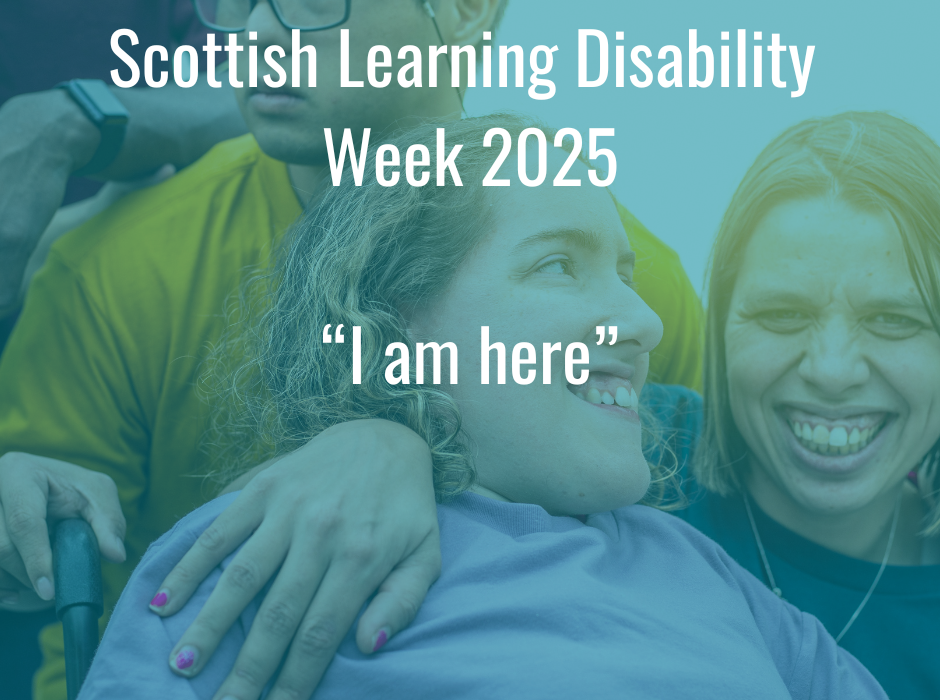We talk a good game on social care in Scotland. Our Government have made bold commitments, passed solid legislation, but what we haven’t done is follow through on delivering the promised change in people’s lives. Our implementation gap is huge.
The Keys to Life Learning Disability Strategy made strong commitments on what people can expect from their public services. Published in 2013, the strategy isn’t about social care, but social care is critical to its delivery, and while some progress may have been made, we are a long way off from delivering on its promises.
The Self-Directed Support (Scotland) Act 2013 was campaigned for and welcomed by disabled people and their organisations, but it has not delivered on its promise. Likewise the Public Bodies (Joint Working) (Scotland) Act 2014, legislation designed to facilitate integration, prevention, and the importance of involving people and communities – as recommended by the Christie report on the future delivery of public services – has delivered significant structural shifts, but limited change in people’s direct experience.
The Scottish Government’s plans for a National Care Service felt like more of the same – big promises but a focus on large structural change rather than a shift in culture or practice. What those initial plans did offer was a vision – a set of legislative principles to guide the National Care Service, principles that included the positioning of social care as an investment in society, the emphasis on prevention and early intervention, on collaboration with people who use services. When the Government withdrew its plans for a NCS, these proposed principles disappeared.
This raises the question – do we have a clear, shared understanding of what social care services are for? Of what people should expect from these services? I don’t think we do, and that allows us to say one thing, and deliver another.
In 2018, disabled people told us what they thought social care should deliver, and what was needed to ensure that it did. ‘Our Shared Ambition for the Future of Social Care and Support in Scotland’ called for sustained public investment in the development of a modern, nationwide infrastructure of social care support. It envisioned a national set of standards and outcomes, of clear and consistent nationwide rights and entitlements, delivered locally in a way that reflected and adapted to varied local contexts across Scotland. It positioned social care as an instrument of transformative social change.
When the Independent Review of Adult Social Care (IRASC) was announced in 2020 we expressed some frustration. We felt that the case had been made – clearly and repeatedly – for what was wanted and what was needed. But the review did add to the evidence base, and did itself support what disabled people had asked for three years previously.
Now, four years on from the IRASC recommendations, as this Parliamentary term draws to a close, not only are we no further forward in delivering either those recommendations or the Shared Ambition for Social Care, but social care has all but fallen off the agenda. After the Scottish Government’s plans for a NCS collapsed and the Care Reform Bill was passed without much promise of actual reform, Ministers have set out an ambitious vision for Health and Social Care service renewal, for population health and for public service reform, with no acknowledgement of the IRASC recommendations that were never delivered.
This all suggests at best a lack of priority – at worst, a lack of ability – at the national level to engage with the crisis we are experiencing in the social care sector, or to prioritise the action that disabled people need to see. A lot has changed since the Keys to Life strategy was last refreshed in 2019, but we don’t need a new and shiny approach – we need to learn from what was tried, understand what got in the way, and commit to grasping the nettles. We need specific action to remove the structures and practices that keep preventing us from turning those warm words in to reality.
Faye Keogh, Policy Officer, Turning Point Scotland.

